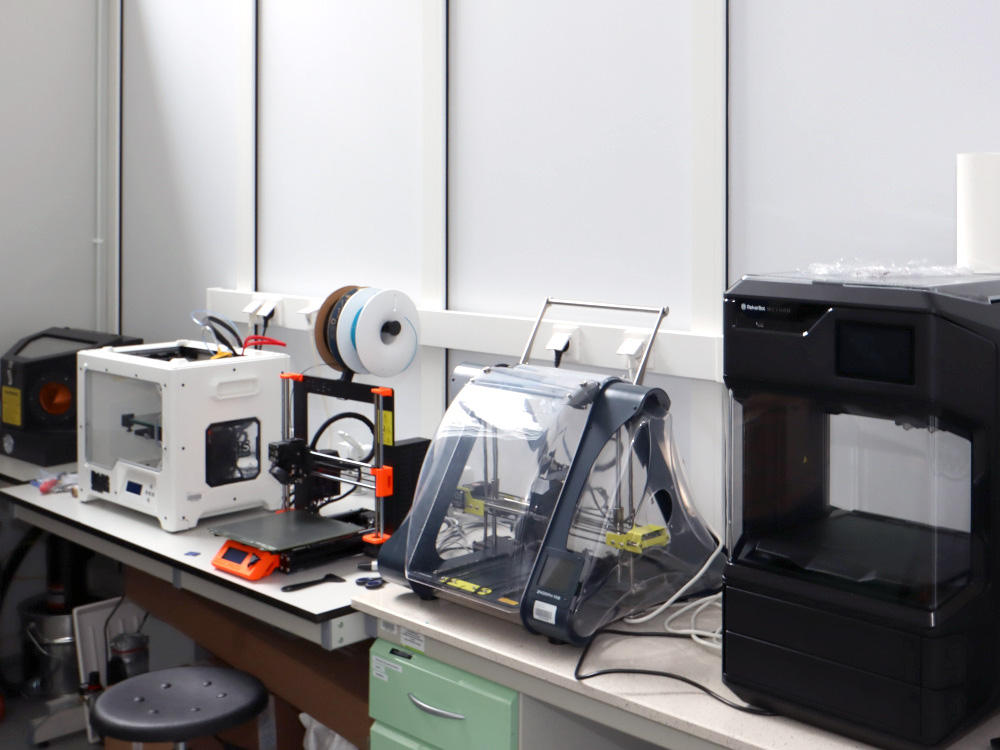We’re currently preparing this section. Please check back later.
Started: 2024-09-09
- /
End: 2024-09-10
We’re currently preparing this section. Please check back later.

We’re currently preparing this section. Please check back later.
Started: 2024-09-09
End: 2024-09-10
The project aims to create innovative 3D-printed bioactive glasses and glass-ceramic composites to rival traditional silicate-based biomaterials. These new materials will have high phosphorus and calcium content for bone compatibility, and sodium for body mineral balance. They'll also contain non-toxic elements like potassium, magnesium, zirconium, zinc, silver, and niobium to enhance in vitro dissolution, thermal stability, and mechanical properties. Controlled crystallization will be used to influence the dissolution rate, and the goal is to identify promising compositions for 3D-printed scaffolds in biological research.
Started: 2023-09-05
End: 2024-09-04
The project aims to expand scientific cooperation with the Czech Republic and the Warsaw University of Technology. The project will result in scientific publications in journals from the JCR list, new developed technologies and research equipment.
Started: 2023-10-01
End: 2023-10-02
The proposed project aims to exploit the novel 3D approach to design the electrochemical sensory platform, based on self-assembly mechanisms of gold nanocubes (NC’s) at the electrode surface and resulting from the presence of the electric field and/or interaction of the NC’s with target biochemical systems. The Project will be carried out by an interdisciplinary group of experts between Gdansk Tech and Gdansk University.
Started: 2021-01-26
End: Current
The project is focused on developing 3D printing technology using polylactide reinforced with diamond powder, enabling the development of 4D materials for the construction of free-standing sensor systems and actuators with characteristics modified by environmental factors. As part of the project, the authors intend to investigate the micromechanical and rheological interactions of composites and the mechanisms of charge transfer in the volume of the material and on its surface. The main goal of the work concerns the determination and design of the stability of the nanomechanical and electrochemical parameters of the composite, with a view to using it in accordance with the concept of 4D intelligent materials, including microelectrode array systems and flow sensors.
Started: 2021-03-25
End: 2024-09-24
The project concerns new impedance diagnostic techniques based on the analysis of interactions of proteins derived from SARS-Co-2. Experimental research will be supported by quantum simulations. The result will be scientific publications and know-how. It is planned to employ biotechnologists and cooperate with laboratories from the Jagiellonian University, IBMM and Caltech (USA).
Started: 2020-06-05
End: 2021-12-04
The project aims to create an efficient water remediation system using electrocatalytic processes to eliminate organic pollutants such as drugs, antibiotics, hormones, and dioxins. It involves an electrochemical reactor with AI integration for enhanced efficiency. Specifically, the project focuses on developing high-surface-area glassy carbon foam electrodes modified with metal oxides and diamond layers. This initiative will expand materials and electrochemical laboratories at Gdańsk University of Technology, ultimately leading to technology for commercial water purification from toxic organic pollutants.
Started: 2020-10-01
End: 2023-10-01